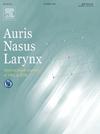Evaluation of reading, cognitive and auditory processing skills of university educated cochlear implant users
IF 1.5
4区 医学
Q2 OTORHINOLARYNGOLOGY
引用次数: 0
Abstract
Objective
The aim of study was to compare the reading, cognitive and auditory processing skills of university educated cochlear implant (CI) users and normal hearing individuals with similar levels of education and to examine the relationship between these skills. A secondary aim was to examine the relationship between the demographic information of CI users and the skills that were assessed in the study.
Methods
This study included 30 normal hearing individuals and 30 CI users who were matched for age, gender and cortical maturation. The reading speed of the participants was determined by using a text from the Informal Reading Inventory. Additionally, the Phonemic Verbal Fluency (PVF) Test, Auditory Verbal Learning Test (AVLT), P300, Frequency Pattern Test (FPT), and Gaps-in-Noise (GIN) tests were performed.
Results
Reading speed, PVF, FPT and GIN tests were significantly better in normal hearing individuals. However, AVLT and P300 results were not significantly different between the groups. Significant correlations were identified between the skills assessed in both groups. Furthermore, significant correlations were identified between the age at start of auditory (re)habilitation and reading speed in CI users.
Conclusions
Although university educated CI users have worse reading speed and auditory processing skills than their normal hearing peers, their learning and memory performance is similar. In addition, there may be different factors affecting these skills in both groups.
大学教育人工耳蜗使用者阅读、认知和听觉加工能力的评估。
目的:比较大学学历人工耳蜗使用者与正常听力者的阅读、认知和听觉加工技能,并探讨这些技能之间的关系。第二个目的是检查CI用户的人口统计信息与研究中评估的技能之间的关系。方法:本研究包括30名听力正常的个体和30名年龄、性别和皮质成熟度相匹配的CI使用者。参与者的阅读速度是通过使用非正式阅读清单中的文本来确定的。此外,还进行了语音流畅性测试(PVF)、听觉语言学习测试(AVLT)、P300、频率模式测试(FPT)和噪声间隙测试(GIN)。结果:正常听力组阅读速度、PVF、FPT、GIN均明显优于正常听力组。然而,AVLT和P300结果在两组间无显著差异。两组被评估的技能之间存在显著的相关性。此外,CI使用者听觉(再)康复开始年龄与阅读速度之间存在显著相关性。结论:虽然受过大学教育的CI用户的阅读速度和听觉处理技能比听力正常的同龄人差,但他们的学习和记忆表现相似。此外,影响两组人这些技能的因素可能不同。
本文章由计算机程序翻译,如有差异,请以英文原文为准。
求助全文
约1分钟内获得全文
求助全文
来源期刊

Auris Nasus Larynx
医学-耳鼻喉科学
CiteScore
3.40
自引率
5.90%
发文量
169
审稿时长
30 days
期刊介绍:
The international journal Auris Nasus Larynx provides the opportunity for rapid, carefully reviewed publications concerning the fundamental and clinical aspects of otorhinolaryngology and related fields. This includes otology, neurotology, bronchoesophagology, laryngology, rhinology, allergology, head and neck medicine and oncologic surgery, maxillofacial and plastic surgery, audiology, speech science.
Original papers, short communications and original case reports can be submitted. Reviews on recent developments are invited regularly and Letters to the Editor commenting on papers or any aspect of Auris Nasus Larynx are welcomed.
Founded in 1973 and previously published by the Society for Promotion of International Otorhinolaryngology, the journal is now the official English-language journal of the Oto-Rhino-Laryngological Society of Japan, Inc. The aim of its new international Editorial Board is to make Auris Nasus Larynx an international forum for high quality research and clinical sciences.
 求助内容:
求助内容: 应助结果提醒方式:
应助结果提醒方式:


